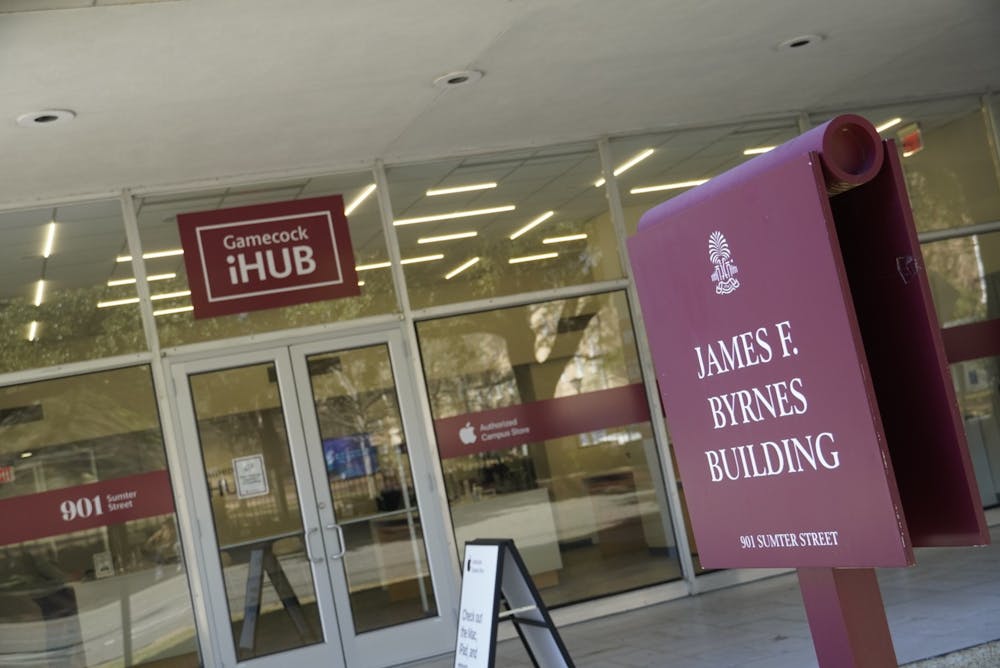The Title IX task force-turned-implementation group has come a long way in helping students in need but still needs to take concrete action and be more open to the public in order to gain student trust.
The Title IX law was decided under the Education Amendment of 1972 that broadly states; "No person in the United States shall, on the basis of sex, be excluded from participation in, be denied the benefits of, or be subjected to discrimination under any education program or activity receiving federal financial assistance" according to knowyourix.org.
Under Title IX, schools like USC that receive federal funding are legally required to respond to situations that involve sexual harassment or violence. Schools that don't are at risk of losing federal funding.
The Title IX task force launched on March 2021 after a series of newspaper articles came out involving lawsuits against USC faculty and staff, according to Dean of Students, Interim Vice President of Civil Rights and Title IX, Marc Shook.
"At that point in time, then-President Caslen decided the university needed to take a larger look at this," Shook said. "But the creation of the Title IX task force was an idea to examine 100 percent from the very beginning what are we doing, what's working, what's not working, what are ways we can make our environment as free of discrimination and harassment as possible."
The task force produced a report that examined how the university handled Title IX cases. The report found that USC needed work in training and education, reporting, investigation, discipline and advocacy, which were all severely lacking on campus according to the task force.
After interim university President Harris Pastides took office, the task force shut down. It was replaced by the implementation group, which over the summer, created a plan that coincided with the findings of the Title IX task force report and implemented improvements throughout different areas of campus.
This group is new, so most changes aren't being seen on campus at the moment. This can be frustrating to students and members of the group like the interim chief of staff for the office of the President, Stacy Fritz.
"The hardest part for me is that it takes time. We're hiring a new team, we've just hired our assistant vice president. I'm really excited about who else we put on that team and bring in. But it takes time, so I don't know if it's disappointing, but I'm having trouble with patience. I want to see who that team is, because until we have that team in place, it's hard to build that trust," Fritz said.
Right now, as no action has been taken yet, it looks like this group is there to cover for the actions of past cases. This is going to do nothing to help students feel like they can trust this office. Jenna Flake, the undergraduate student representative of the office, said one step towards gaining the students' trust is the new Office of Civil Rights and Title IX.
"We need to be able to dedicate time and people that can spend their whole entire, like that is their job, their career to do that, not try and like spread people super thin and have multiple positions," Flake, third-year finance and real-estate student, said.
This office comes with new management in Assistant Vice President for Civil Rights and Title IX, Molly Periano. She will oversee campus-wide education as well as investigations related to sexual harassment and violence and discrimination.
These are great first steps to getting students' trust, there should be a person whose sole job is to tend to these cases and make sure that students are educated and safe if they do need to report an incident.
Instead of this building being located off-campus, like the Equal Opportunity Program's office location on Hampton Street, the Office of Civil Rights and Title IX is located in the heart of campus, according to Shook.
Having this office in the middle of campus, accessible to students living on campus that maybe don't have a car and also to students who live off-campus, is a smart move on their part. It makes it easier for students that need to talk to someone.
Fritz said she hoped the cases reported, not the activity, go up — because that means there's trust and more incidents are being reported.
"It means that the students and the community are starting to trust the system, and so they are willing to report because we know what's going on, but we want to be there. We can't provide help if we don't know about it, and we can't reach out," Fritz said.
There is still a long way to go for this group to gain the trust of the student body. It's on it to comfort the students and show students the group is here for change and not for some PR reason. This group needs to be public about what it's doing so that students know that change is on its way.
The university looks to be serious and is trying to actually put its students before anything else. It has assembled a staff that is passionate about this issue. It included students in the group to get input from that perspective. But until we see concrete changes, not just saying it's going to do something, it won't have the full trust of the student body.
If you are ever in a situation where you need to reach out to the Title IX office, the SAVIP office is a great resource. If you are in immediate danger, please call 911.

